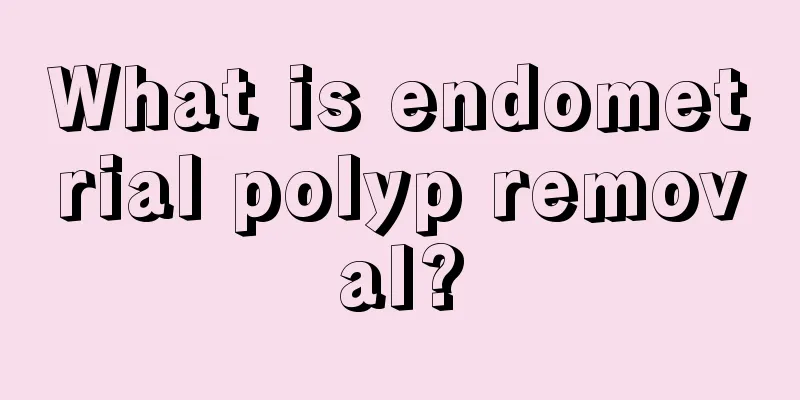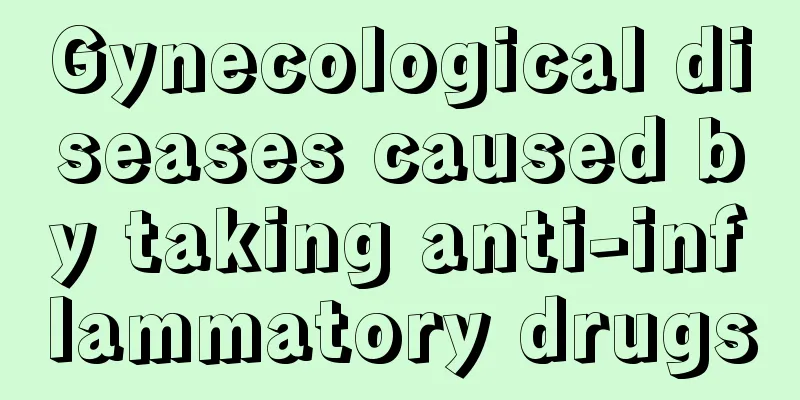What is endometrial polyp removal?

|
Nowadays, the disease of endometritis polyps is becoming more and more common. It is mainly related to women's daily life and diet. Many women only have minor symptoms at the beginning. If they do not receive treatment, the symptoms will become very serious later. By the time they find out that they have endometrial polyps, they have reached a very serious level. In the end, they can only take endometrial polypectomy for treatment. Many patients worry that the operation will have great risks, so what about endometrial polypectomy? Endometrial polyps can progress to adenomatous hyperplasia or even cancer, so we should be more vigilant. The causes of polyp formation may be related to inflammation, endocrine disorders, especially excessive estrogen levels. The treatment of endometrial polyps is mainly surgical, which involves dilating the cervix, removing the polyps, and then scraping the entire uterine cavity. Small endometrial polyps can be scraped out and sent for pathological examination. Regular follow-up should be conducted after surgery to pay attention to recurrence and malignant transformation and to deal with them in a timely manner. For patients over 40 years old, if the bleeding symptoms are obvious, the above treatment cannot eradicate them or they recur frequently, total hysterectomy may be considered. Patients with endometrial polyps need to first identify the cause, so it is recommended that they should have a gynecological examination. Of course, they can go to a regular hospital to receive a doctor's internal examination to see if they have symptoms of uterine fibroids. Of course, abdominal ultrasound examination, that is, B-ultrasound, can check endometrial polyps. To see if you meet the conditions for surgery, you need to have a gynecological examination. Of course, you can also have a hysteroscopy combined with a pathological examination to see the cause of the disease. Hysteroscopic surgery for endometrial polyps is dangerous because it is a surgery that requires anesthesia. For example, the risk of coma due to anesthesia must be considered. After hysteroscopic surgery for endometrial polyps, patients should pay attention to their diet. It is important not to eat too salty food. The diet should be light. Patients should not eat mutton and dog meat. They should eat less seafood, and should not eat shrimps and crabs. In addition, they should be aware that eels and black fish are also irritants. The above is an introduction to how endometrial polyp removal is. Any surgery has risks. Patients with endometritis polyps must undergo physical examinations before surgery. Only when their bodies allow can they undergo removal. After the surgery, they need to pay attention to hygiene, rest in bed more, keep warm, avoid catching cold and being tired, and strengthen nutrition in their diet. |
<<: Symptoms and treatment of endometrial prolapse
>>: What should you pay attention to after endometrial polyp removal?
Recommend
Is it a sign of fetal arrest if the reaction decreases at 8 weeks of pregnancy?
In the early stages of pregnancy, 80% of women ex...
How to wear contact lenses (follow the instructions or professional guidance for the first time)
...
What are the characteristics of saury? Why is saury bitter?
In my country, saury is often found in Japanese r...
Why does my lower abdomen hurt during breastfeeding?
Women are usually very weak during breastfeeding....
What are the methods for treating hydrosalpinx?
If a woman has water accumulation in her fallopia...
Viruses also "involve"? Omicron's "stealth variant" gradually becomes mainstream
Recently, many Israeli media reported that the co...
What should I do if I get bloated after eating winter jujube? What is the edible value of winter jujube?
Winter dates are delicious when eaten fresh, with...
Can my aunt eat kelp?
Women should try to avoid eating cold foods durin...
Female with left thigh pain
For all female friends, there are often various t...
What happens to a woman without a uterus?
The uterus is unique to women. If a woman loses h...
Does pelvic effusion really affect pregnancy?
Pelvic effusion is a common symptom in women, whi...
Can pregnant women take calcium carbonate tablets?
After a woman becomes pregnant, she generally nee...
How to lose weight in the abdomen for middle-aged women
When female friends are in their twenties, they h...
What is bleeding during the seventh month of pregnancy?
Bleeding during the seventh month of pregnancy is...
Can I open a durian that has not cracked? How can I store an unopened durian?
If the durian is not ripe, you can use temperatur...









